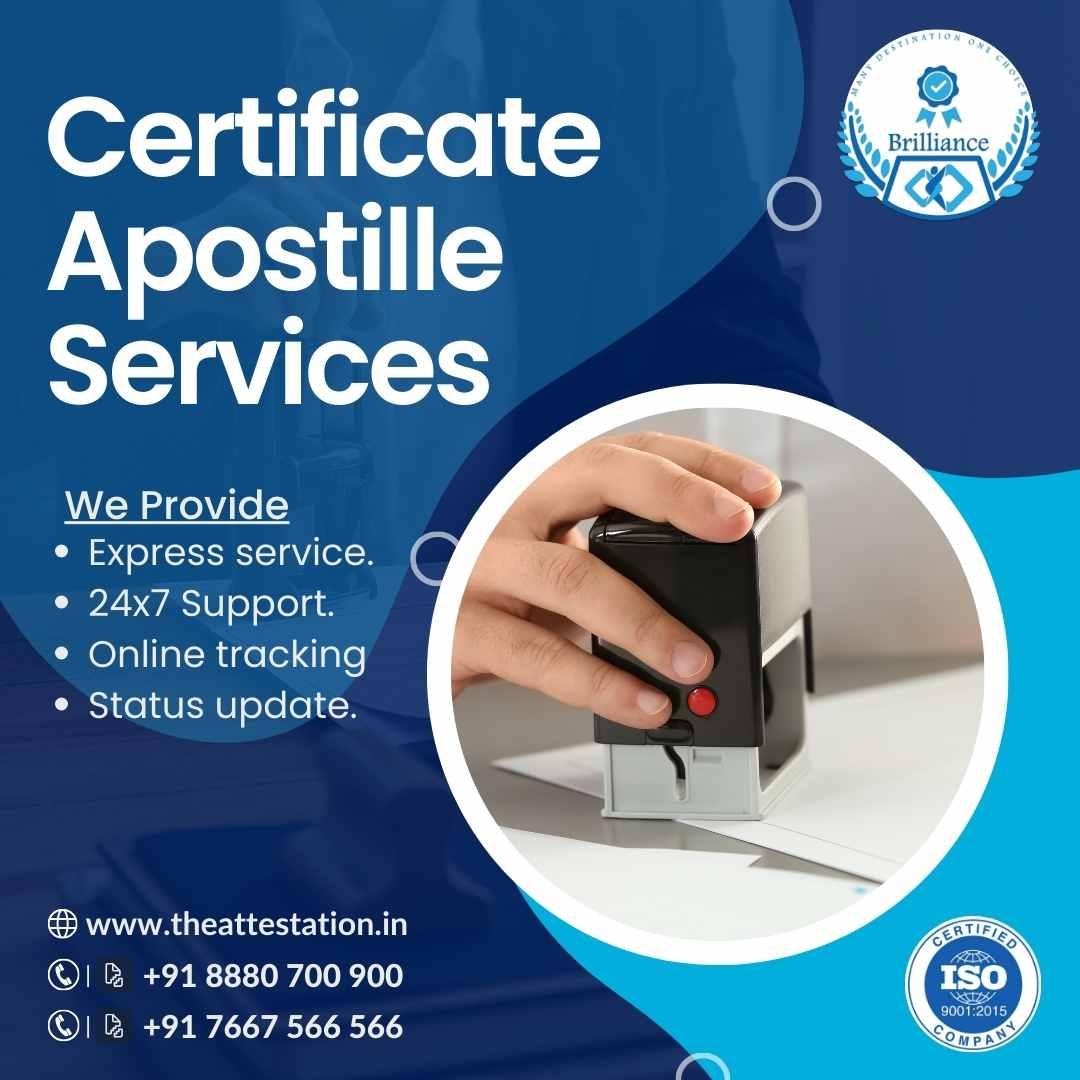Apostille Attestation is a method for authenticating documents that are published in one nation and establishing their legitimacy in another nation that is a signatory to the Hague Apostille Convention.
The Apostille Treaty, commonly referred to as the Hague Apostille Convention, is an international agreement that makes it easier to authenticate papers for use abroad.
Apostille attestation is used to confirm the authenticity and source of official documents such as birth certificates, marriage certificates, academic degrees, powers of attorney, and other legal records. It guarantees that these documents are accepted without further legalisation or authentication in the foreign jurisdiction.
Apostille attestation is the process by which the appropriate authority in the nation where the document was issued affixes an apostille certificate to the document. The apostille certificate acts as proof that the document is legitimate and was produced by an authorised body. It comprises details such as the nation of origin, the signer's name, the position they held, and the seal or stamp of the appropriate authority.
Apostille attestation is especially helpful for people and companies engaged in international activities, such as those looking for work or school abroad, getting married abroad, establishing a corporate presence, or dealing with legal issues in another country.
It assures that the documents are recognised in the Hague Apostille Convention member nations and reduces the need for time-consuming and expensive traditional legalisation procedures.
It is significant to remember that only nations that have ratified the Hague Apostille Convention are eligible for Apostille Attestation. Since not all countries are signatories to this convention, an alternative of legalisation or authentication may be necessary.
Apostille attestation services are essential for ensuring the legality and authenticity of documents in cross-border transactions. It is crucial to understand apostille services if you intend to engage in any legal or business transaction, go abroad to study or work, or any combination of these.
For an official document issued in one nation to be recognised by another nation that is a signatory to the Hague Convention, it must first receive an apostille, which is a certificate that verifies the origin and authenticity of the document. It is a simplified and uniform method of legalisation that does not require any additional authentications or certifications.
An apostille is used to speed up international document recognition. It ensures that documents like birth certificates, marriage certificates, academic degrees, and business contracts are regarded as legitimate and legally enforceable in nations other than their country of origin.
The following are the essential guide for Apostille Services:
International Acceptance
Countries that are a part of the Hague Convention accept apostille documents without exception. This acceptance guarantees that your documents won't require additional authentication or legalisation, saving you time, effort, and potential difficulties.
- Legal Acceptability
Your documents could not be regarded as authentic or legally binding in another nation if they lack an apostille. Having your documents apostilled is essential to ensure compliance with local rules and regulations, whether you are seeking a job, enrolling in school, or doing business abroad.
Apostille services assure you that your documents are valid and will be accepted around the world. When dealing with official matters which require confirmation of identification, credentials, or legal agreements, having this additional confidence is very crucial.
Apostille services are generally used for international document validation. Understanding Apostille Attestation, how they work, and why they are essential will ensure that your documents are easily accepted in other countries.
When negotiating the complex rules of cross-border transactions, whether for personal or professional use, apostille services provide the authenticity and legal validity necessary.
